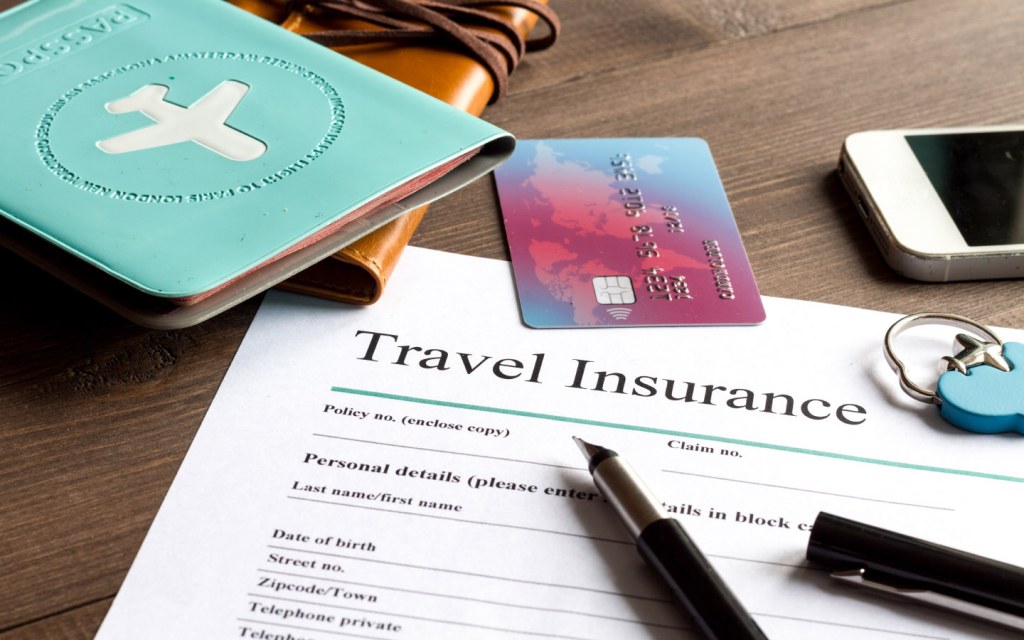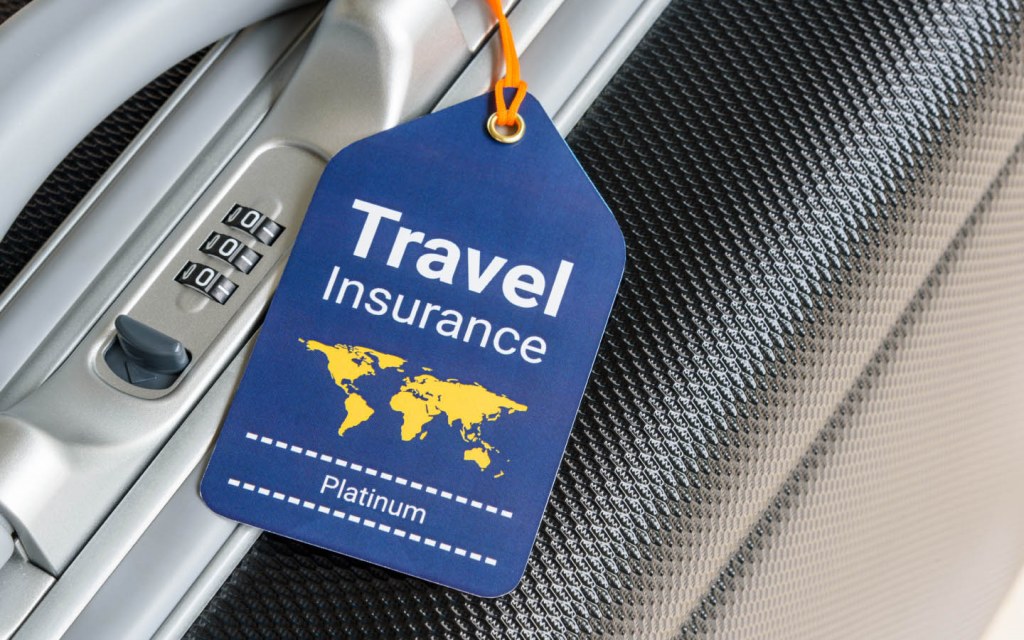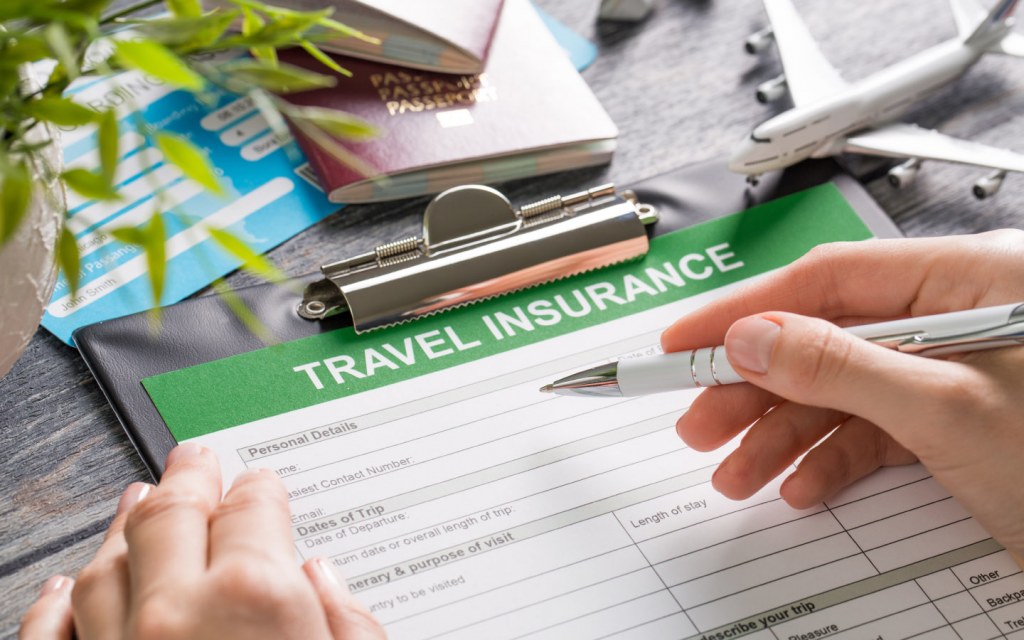When you are in a foreign country, even a minor accident or a short trip to the doctor can rake up thousands of dollars in bills. However, if you want to enjoy a hassle-free travelling experience with complete peace of mind, you should consider buying travel insurance.
Whether you are a student travelling to another country for higher education, a businessperson going abroad on a work trip, or just someone who loves visiting new places and exploring new surroundings, you need to have a plan in place to deal with any unforeseen or sudden mishaps. Since going far away from home involves a fair bit of risk, buying travel insurance has become somewhat of a necessity in recent years. In fact, you can’t apply for visa or book flights to certain countries without first getting yourself insured and attaching the proof with the rest of your documents for verification.
Even if having insurance is not mandatory for the travel destination of your choice, you should always get travel insurance to help protect you against any unexpected losses.
A number of renowned insurance companies in Pakistan offer a range of travel insurance plans with different premiums and coverage. However, before you start comparing travel insurance plans, let’s take a look at what travel insurance is, how it works, and why you should always buy insurance before travelling.
What is Travel Insurance and How Does it Work?

Much like property insurance or health insurance, travel insurance works as a safety net. It offers you protection against a range of accidents and unexpected events that may take place while you are travelling. Travel insurance plans usually provide coverage for medical emergencies and unplanned hospitalisation expenses, loss of luggage, loss of passport, trip cancellation, and delayed flights among others.
Travel insurance mostly works in a reimbursement structure. It means in a case of an emergency such as medical evacuation or change of flights due to a delay, you’ll have to pay the cost upfront and then file a claim. Depending on your situation, you will be required to submit relevant documentation, such as medical bills and flight schedules, along with a consent form from the hospital or the airline company, before forwarding your claim to your insurance company.
If everything works out perfectly, you’ll be reimbursed either completely or a certain percentage of the money you’ve spent.
It is important to mention that a number of providers offer domestic travel insurance plans, as well.
When and How to Buy Travel Insurance?

Since several insurance companies in Pakistan are currently offering this service, you can simply visit their websites and compare their plans. You should also be aware of the specific insurance requirements mentioned in your visa application form.
The premium for travel insurance plans varies with the coverage it offers as well as your chosen destination, the purpose of travelling, and the duration of stay. Moreover, you can also buy travel insurance online. Almost all insurance providers allow their customers to purchase plans through their websites, which is both time and cost-effective.
As for when to buy travel insurance, it is important to mention that these plans are always bought before a mishap occurs. You cannot purchase a plan to file claims after the event has taken place. Therefore, the best way to purchase travel insurance is to carefully go through the details and understand what type of coverage a plan does or does not provide.
Common Types of Travel Insurance

If you’re interested in buying travel insurance, these are some of the most common types offered by various insurance companies in Pakistan.
- Travel insurance for Schengen countries
- The UK travel insurance
- Travel insurance for religious pilgrimage, such as Hajj, Umrah, and Ziarats.
- Worldwide travel insurance
- Domestic travel insurance
- Travel insurance for students going on an exchange program or studying abroad
- Travel insurance for an individual, family (usually up to 4 children), or a group. This is mostly for tourism purpose
- Single trip and multi-trip travel insurance
- Long-term travel insurance. This plan is most suitable for people who plan on staying in a foreign country for an extended period (1 year at most)
Why Is It Important to Buy Travel Insurance?

If you’re still wondering why you should always buy insurance before travelling, consider this scenario:
Let’s say Person A gets into a small car accident during their trip to another country. Although their injuries are not severe, they still need to be rushed to the hospital where they will be given emergency treatment and kept under observation for a few hours or, depending on the situation, maybe even a few days.
Now, if this accident has taken place in the United States, Canada, the United Kingdom, or some other country in Europe, Person A is likely to rake up a medical bill worth thousands of dollars or euros – and that’s not even the worst-case scenario.
Luckily, since Person A had bought travel insurance before leaving their country of residence, they can now send the medical bill along with the hospital’s consent to their insurance provider. While the insurance company evaluates their claims and verifies the documentation, Person A can either pay the hospital a small instalment or the total bill, whichever is doable. Once the claim is verified, Person A will be reimbursed (either fully or partially) for the incurred losses.
However, had Person A not bought travel insurance before their departure, they would have been forced to foot the entire bill themselves, which would have definitely ruined their vacation and might have also impacted their long-term financial standing.
Benefits of Buying Travel Insurance

These are some of the most notable benefits of having travel insurance – although these may vary with each plan depending on the coverage it offers:
- Emergency medical assistance
- Transport or repartition in case of injury or illness
- Repartition of a family member
- Returning home following the death of a close relative
- Accidental death
- Permanent disability
- Lost Luggage, flight delays, and cancellations
- Theft and credit card fraud
Let’s further discuss these benefits of buying travel insurance in detail.
Emergency Medical Assistance
Most insurance providers offer coverage for medical evacuations, ambulance transportation, and airlift (if needed). Similarly, if someone needs to suddenly visit the dentist or has to be hospitalised due to an injury or illness, they’ll be reimbursed for their emergency treatment, hospital stay, and surgery among others.
While these events can’t be controlled or predicted, here are a few tips you should follow to avoid getting sick while travelling.
Transport or Repartition in Case of Injury or Illness
If someone is extremely sick and can’t travel back home under normal conditions, the insurance company will cover the added accommodation and travel expenditure. As morbid as it may sound, some providers also offer repatriation of mortal remains coverage in case someone dies during their trip to another country or even a different city.
Accidental Death
If a person dies within a specified period after coming back from a trip, a death payment is offered to their next of kin, provided the insured person passed away due to an injury sustained during their holiday.
Permanent Disability
Similarly, if someone loses a limb, or suffers any other permanent disability while travelling to another country, the insurance company will provide them with a disability payment for a specific period.
Repartition of Family Member
Most travel insurance plans also cover expenses related to family emergencies. For instance, if a close relative travelling with the insured gets injured, becomes disabled, or dies during the trip, the provider will bear the expenditure for hospitalisation and/or funeral arrangements.
Returning Home Following the Death of a Close Relative
In the case of a close family member’s hospitalisation due to severe sickness or their unexpected death, the insurance plan will cover the insured person’s flight back home along with other modes of transportation.
Lost Luggage, Flight Delays, and Cancellations
In case someone loses their luggage, or it is delayed by more than 12 hours, their insurance providers will reimburse them for the cost of buying necessities such as clothes, toiletries, and such.
Furthermore, buying travel insurance also covers any cancellation charges in case of missed flights or hotel bookings owing to events that were out of a person’s control. Some examples may include traffic accidents, natural disasters, or strikes.
As for flight delays spanning 6 or more hours, most insurance companies in Pakistan also reimburse the insured person for their accommodation and food.
Theft and Credit Card Fraud
The insured person will also be reimbursed for replacement costs if their passport or travel documents are lost or stolen during their holiday. Moreover, most insurance providers also reimburse customers if their credit cards are stolen and misused during the trip. But, the traveller will have to file an official complaint at the police station to qualify for reimbursement.
As mentioned above, you must properly understand the terms and conditions of different travel insurance plans before signing on any dotted lines, as these benefits may vary with each plan.
On a side note, if you’ve still not decided on your next travel destination, take a look at some of the countries that offer visa-free travel to Pakistani passport holders.
Moreover, you can also take a look at our comprehensive guide on buying life insurance in Pakistan to understand how it works and what does it cover.
Stay tuned to Zameen Blog, the top lifestyle and real estate blog in Pakistan, to learn more about insurance policies and various coverage plans. For any questions, send us an email at blog@zameen.com. You can also subscribe to our newsletter to stay up-to-date about the latest developments in the property sector of the country.



